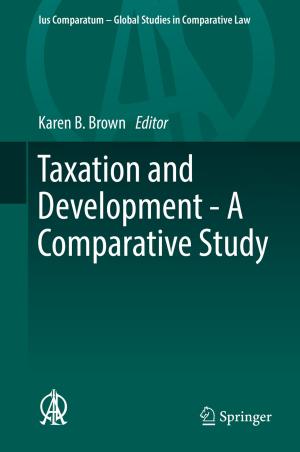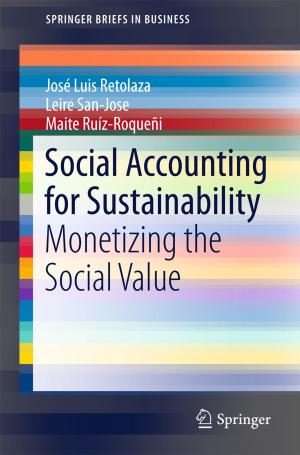Financial and Accounting Principles in Islamic Finance
Business & Finance, Accounting, Management, Finance & Investing, Banks & Banking| Author: | Samir Alamad | ISBN: | 9783030162993 |
| Publisher: | Springer International Publishing | Publication: | May 10, 2019 |
| Imprint: | Springer | Language: | English |
| Author: | Samir Alamad |
| ISBN: | 9783030162993 |
| Publisher: | Springer International Publishing |
| Publication: | May 10, 2019 |
| Imprint: | Springer |
| Language: | English |
This book provides an original account detailing the origins and components of a faith-based accounting system that was founded around 629 CE. By examining the historical development that the accounting systems underwent within the context of faith-based rules and values, the book explains what is meant by the term “faith-based accounting”, together with a discussion of its characteristics in relation to various product structures and the underlying Islamic finance principles. It provides important theoretical and practical contributions by explaining accounting as a value-based science rather than a value-free object or abstract. This book explores the way in which religious rules act as a directive for accounting and auditing practices in IFIs. Through which the concept of money and digital currency within the theory of money and how it is enacted in a faith-based context, amid differences of opinions among its actors, is examined. This is an important foundation to explain Islamic accounting and includes how this outcome would shape the faith-based view regarding the new phenomenon of digital currency (DC). Also featured is the concept of paper money within the theory of money and how it is enacted in a faith-based legal framework by identifying two core concepts of today’s Fiat money as being a single genus or multi-genera money. This book is not merely an academic work, nor is it a pure practitioner guide; rather, it is a robust work that combines both. It marries rigorous academic research and theories with practical industry experiences. The book provides a clear and concise guide to accounting in Islamic economics and finance and how Islamic financial institutions could meet the applicable faith-based rules in their accounting practices.
This book provides an original account detailing the origins and components of a faith-based accounting system that was founded around 629 CE. By examining the historical development that the accounting systems underwent within the context of faith-based rules and values, the book explains what is meant by the term “faith-based accounting”, together with a discussion of its characteristics in relation to various product structures and the underlying Islamic finance principles. It provides important theoretical and practical contributions by explaining accounting as a value-based science rather than a value-free object or abstract. This book explores the way in which religious rules act as a directive for accounting and auditing practices in IFIs. Through which the concept of money and digital currency within the theory of money and how it is enacted in a faith-based context, amid differences of opinions among its actors, is examined. This is an important foundation to explain Islamic accounting and includes how this outcome would shape the faith-based view regarding the new phenomenon of digital currency (DC). Also featured is the concept of paper money within the theory of money and how it is enacted in a faith-based legal framework by identifying two core concepts of today’s Fiat money as being a single genus or multi-genera money. This book is not merely an academic work, nor is it a pure practitioner guide; rather, it is a robust work that combines both. It marries rigorous academic research and theories with practical industry experiences. The book provides a clear and concise guide to accounting in Islamic economics and finance and how Islamic financial institutions could meet the applicable faith-based rules in their accounting practices.















